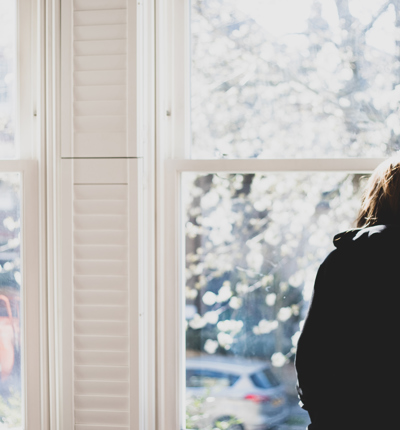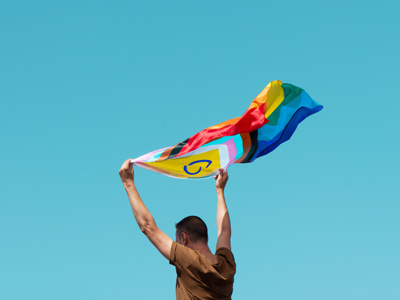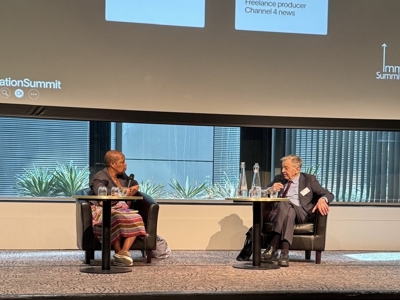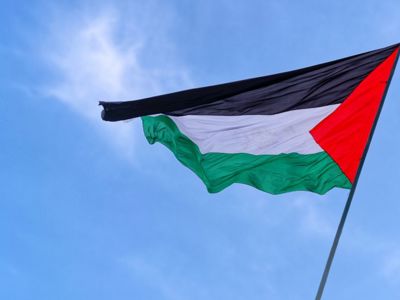
First-hand accounts of claiming asylum in the UK
As we mark Refugee Week, Rebecca Fry has spoken with several individuals the Immigration and Asylum Team at Leigh Day have represented who have recently had successful asylum claims and now have refugee status. These individuals, whose names have been anonymised for their safety, have kindly agreed to share their experiences.
Posted on 19 June 2025
Our wonderful contributors are:
F – an Iranian national who claimed asylum primarily on the basis of their religion;
A – a Tunisian national who claimed asylum primarily on the basis of their LGBTQ+ identity;
Muhand – an Iraqi national who claimed asylum primarily on the basis of their LGBTQ+ identity.
How did you find the process of claiming asylum in the UK?
F: The process was very long and frustrating. Shortly after I arrived in the UK, I was told I would be sent to Rwanda. I had to report to the Home Office frequently and every time I went to report I got stressed out that they would send me to Rwanda or back to Iran. I was also detained by the Home Office for a month last year, again being told I would be sent to Rwanda. Even after the Home Office agreed to consider my asylum claim in the UK the process was long – I had to have three interviews with the Home Office. The interviews themselves were okay – I answered their questions honestly. In total it took over two years for my asylum claim to be processed by the Home Office. It really had a very big impact on my mental and physical health being stuck for so long – it destroyed my life during that time.
A: The asylum process was an emotional rollercoaster. It tested every part of me, patience, strength, even identity. But throughout it all, I tried to stay active. That’s something I want to share with others: try, as much as you can, to stay engaged with life. Stay connected. Set small goals, little victories, however modest, that help anchor you. There is power in movement, even when everything else feels stuck. I believe that’s how we hold on, and how we keep existing, even in uncertainty.
Even in limited conditions, we stay connected to people, we learn, and we purpose. Remind yourself that this is a process, one that takes time. And in a new environment, it’s important to adapt, to respect where we are, and to contribute positively before expecting anything in return.
Muhand: The process of claiming asylum in the UK was incredibly challenging, both emotionally and mentally. While I am grateful to have received legal support and eventually been granted protection, the waiting period was filled with fear and uncertainty. The interviews, the need to recount traumatic experiences, and the long months of not knowing what the future held were deeply stressful. I was very lucky to have a professional solicitor by my side throughout the process — she was kind and patient while listening to the story of my life over the past 35 years.
Nowadays in the UK, some people see asylum seekers as a burden or a problem. As a member of the LGBT community, I want to take this Pride Month to say: I am proud of who I am and the way I was born. People from the LGBT community are peaceful, intelligent, and compassionate; we have empathy and good hearts. We don’t want to cause problems for anyone. But sadly, in our home countries, we face severe judgment, forced marriages, ongoing abuse, or even death in the name of so-called "honour killings." We have no other choice but to leave — to escape threats from our families, society, governments, and even religion. If there were any other choice, no one would want to leave their land, food, culture, family, relatives, friends, and whole community to seek asylum in another country.
Some of us (LGBT community) still face silent judgment from other asylum seekers in the hotels, which can make life even harder. I hope the government can continue to support us — not just with the asylum process, but also with long-term safety, understanding, and inclusion in this country.
If you could go back and speak to yourself at the start of the asylum process, what would you like to tell yourself?
F: This is a difficult question to answer. If I could go back to the start of the asylum process, I would hope to be treated like a normal asylum seeker without the stress of removal to Rwanda. I would hope that none of what happened to me with the Rwanda Scheme happened again.
A: I think I would tell myself one simple but powerful thing: Trust.
It’s easy to say, and much harder to do, but now, when I look back and reflect on everything, I realise that I was always received with kindness, treated with respect, considered and even loved. There were people who listened to me, supported me, and truly saw me. That means more than I can explain.
Of course, the process felt endless some days and full of challenges. I struggled, especially at the beginning, to open up and express myself. It took time for me to come to terms with my past and to believe again in my own voice. But throughout it all, I was surrounded by people who gave me space, care, and understanding. Some of them are still close to me today.
If I could go back, I would tell myself to believe in that human warmth a little sooner. To trust the process, not just the legal one, but the personal one. And to trust that, even through the hardship, I would meet people who genuinely cared.
Above all, I would remind myself that I did what I could with what I had. I stayed active, I tried to contribute where I could, and little by little, I moved forward. And now, with hindsight, I can say this with full honesty, I am deeply, deeply grateful.
Muhand: I would tell myself to stay strong and not lose hope — that this difficult journey, though painful and exhausting, will lead to safety and a chance to rebuild life. I would remind myself to do what I want and live how I like, without fear of judgment because of my sexuality. I’d also say: it's okay to ask for help - there will be people who care, even in the darkest moments.
What hopes do you have for your future now that you have been granted asylum?
F: I just want to have a comfortable life without stress and problems. My situation now is okay – I have a place to live. I also hope that law and justice will apply equally for all in the UK in the future. I know of people now who get their refugee status after only a few months in the UK whereas for me, because of the Rwanda Scheme, it took years and a lot of stress.
A: Now that I have been granted asylum, my greatest hope is to continue rebuilding my life with intention, stability, and grace. I want to remain active, to stay engaged with the world around me, and to keep contributing in meaningful ways.
I know this new beginning comes with responsibilities. It’s not just about receiving, but about giving - giving time, energy, perspective, and presence. I want to earn my place by being part of something greater, by supporting others the way I’ve been supported.
Step by step, I’m reconnecting with my professional path, regaining confidence, and allowing myself to dream again, not as someone in survival mode, but as someone who is finally building. I’m learning to trust myself, trust life, and trust the new environment I’m now part of.
Resilience, for me, is not something you declare, it's something you live, quietly and persistently. My hope is to continue living with dignity, to never forget how far I’ve come, and to help create safe and supportive spaces for others who are still walking through their own uncertainty as well.
I’m deeply grateful to Leigh Day for having taken on my case in the first place, and for the care and professionalism with which you guided me through every step. I know how precious that support is, and I will never forget it.
Muhand: Now that I have been granted asylum, I hope to continue my education and pursue a PhD. I also hope to settle down and contribute positively to my new community here in the UK by sharing my knowledge and supporting others who may be facing similar challenges. Most importantly, I want to live openly and safely as myself — something that was never possible in my home country.

Refugee Week: Asylum Claims Based on Sexual Identity
In Refugee Week, Jerome Bond and Jacqueline McKenzie highlight inadequate Protections and Safeguards for those making asylum claims based on sexual identity

Refugee Week: Lord Alfred Dubs gave Immigration Summit candour, brilliance and a little rage (1)
At the start of Refugee Week, Leigh Day’s head of immigration and asylum, Jacqueline McKenzie, reflects on an address by Lord Alfred Dubs at the firm’s Immigration Summit earlier this year.

The Refugee Convention and the Inaccessibility of Protection for Palestinians in Gaza
As we mark Refugee Week, Nath Gbikpi reflects on the principles of protection enshrined in the 1951 Refugee Convention and on the significant gaps between those principles and the lived realities of many refugees around the world.

